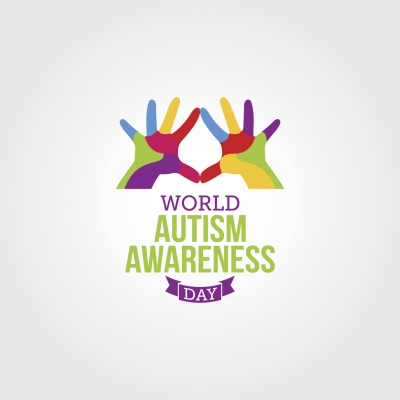
The United Nations General Assembly unanimously declared 2 April as World Autism Awareness Day to highlight the need to help improve the quality of life of those with autism so they can lead full and meaningful lives as an integral part of society.
What is autism?
Autism is a neurological (relating to the nervous system) condition. Though it is not clear how and why it occurs, factors such as heredity and the environment are likely tied to it. Autism is a spectrum, meaning there’s no one exact type or severity of characteristic defining it. The condition becomes evident during childhood, and lasts forever. People from any gender, community, country, or social position can have this condition. Some people may require a lot of help for day-to-day functioning, while some may need only a bit of support, and some others may not need any sort of assistance at all. Though it cannot be cured, treatment could go a long way in helping them handle the condition to lead a fulfilling life. In fact, there’s evidence that many people with “mild forms” of autsim have gone to become “stars” in their respective fields.
What is it characterised by?
People’s brain development and functioning influence how they undertand others and the world around them. For those with autism, brain functioning is slightly different. So, it impacts how they perceive
what is around them. For them, communication could be a bit of a hassle. In addition, they may feel a need for repeating a few actions. As mentioned earlier, since it is a spectrum, there are several other ways too in which it manifests. Some of them include having difficulty making eye contact, socialising or making friends, dealing with loud noises, strong smells, and crowds. adapting to new situations or changes, conveying one’s thoughts clearly, etc.
However, having one or more of these aspects does not automatically mean that the person has autism. For instance, the absence of social interaction could simply be a sign of intense shyness. It is most important to understand this. What is equally important is to learn how to be kind to them.
How can we help?
It is not uncommon for children or adults to poke fun at those who are different from them. But kindness is definitely a recipe for inclusion and happiness. Irrespective of whether we have autism or any disability, we all deserve to be treated equally and with respect.
• Never bully, tease, or leave out someone because they are different.
• Remember that some things could be difficult for a person with autism. So try to be patient, helpful, and generous with your attention and time.
• Some of them may take longer than others to understand what is communicated. It would be good if you explain everything clearly to them.
• Just like everyone else, people with autism have several positive traits. Find out what theirs is and encourage them.
• When you find them being bullied, stand up for them, and/or report the incident to a trusted adult.
• If you or someone you know appear to have autism, speak with a trusted family member, and visit a physician to understand it better.
Picture Credit : Google




